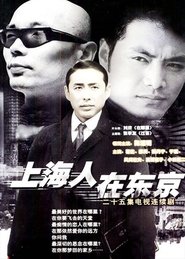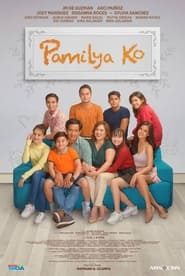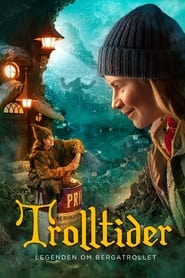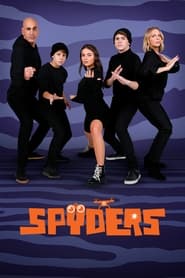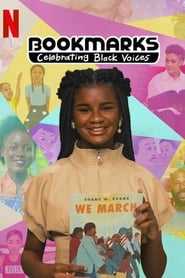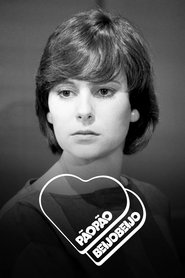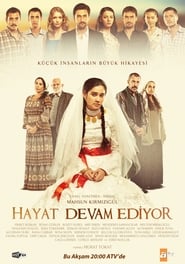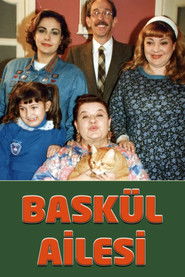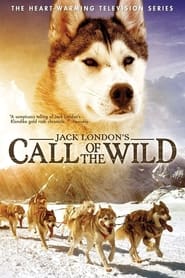Family TV Series - Page 186
-
The Priceless
2021
The Priceless
2021
A story that follows a married couple during their "trial period" and the mother-in-law who turns into a "strict examiner" to put the relationship between the newly-weds to the test. Beijing drifter Ying Bao walked down the aisle on her wedding day wearing the jade bracelet that her mother-in-law gave her. At her honeymoon, she discovers that the bracelet in her possession is a fake and she becomes extremely anxious at the thought of losing a valuable family heirloom that was also a seal of her mother-in-law's approval. Ying Bao's husband Shi Da Yan, mother-in-law Li Shuang Qin and many others are pulled into a commotion over the real and fake bracelets especially when there turns out to be more than one. When the secret is revealed, a change in the fate of a family from turbulent to prosperous times emerges. Everyone realizes that although the jade bracelet is precious, it can never compare to the worth of people’s hearts. Even if an object disappears, love will last forever. -
柠檬丈夫
1988
柠檬丈夫
1988
-
上海人在东京
1996
上海人在东京
1996
-
Pamilya Ko
2019
Pamilya Ko
2019
Pamilya Ko shows us that in our journey through life, whatever triumphs or travails we face, we will always go back home—to our family. From our birth to our last breath, our world revolves around our family who first taught us the power of unconditional love. -
Trolltider – legenden om Bergatrollet
2023
star 5.7Trolltider – the legend of the Bergatrollet is SVT's Christmas calendar 2023, directed by Lisa Farzaneh from a script by Ola Norén and Roland Ulvselius. The series is a "reboot" to SVT's Christmas calendar Trolltider from 1979 with partly the same characters but a new story. -
Spyders
2020
Spyders
2020
star 7.9While spending a summer-long family vacation by the lake, siblings Tommy, Nikki, and Daniel Fisher discover that their seemingly boring parents are actually daring undercover spies, who are chasing a devious villain aiming to dry up the country's water supply. When the siblings realize their parents' mission is in jeopardy, they form a secret task force called THE SPYDERS in order to help them out. Tommy, 12, a cute, irresistible goofball; Nikki, 15, a well-meaning but impetuous leader, and Daniel, 16, a sedentary, anxiety-ridden computer nerd, use their brains, charm, audacity and unbridled enthusiasm to outsmart the villain, who has so far eluded their parents. Will the untrained, blundering Spyders succeed where mom and dad failed? -
Saikou no Jinsei no Owarikata ~Ending Planner~
2012
star 6Saikō no Jinsei no Owarikata: Ending Planner is a Japanese television drama series. It premiered on TBS on January 12, 2012. The drama revolves around the members of the Ihara family who operate a funeral parlor in Tokyo. -
The Astronauts
2020
The Astronauts
2020
star 7.5Five kids accidentally launch aboard a spacecraft meant to intercept a mysterious asteroid in space. With no proper training and a malfunctioning onboard AI, the kids must work together to find their way back home. -
Love in the Tea Garden
2024
Ye Xiyan, heir to the Ye Group, survives a car accident and is rescued by tea garden owner Lu Mingyu. Pretending to have amnesia, she is mistaken for a normal girl and unknowingly gets engaged to him. Their peaceful life is disrupted when Cui Zihao questions her identity, and Lu Mingyu’s past as a bodyguard resurfaces. As conspiracies unfold, they must unite to protect their love and overcome the crisis. -
Bookmarks: Celebrating Black Voices
2020
star 5.4Celebrity readers share children's books by Black authors to spark kid-friendly conversations about empathy, equality, self-love and antiracism. -
我的糟糠之妻
2011
我的糟糠之妻
2011
-
Pão-Pão, Beijo-Beijo
1983
Pão-Pão, Beijo-Beijo
1983
star 8.3To defend the humble Soró Sereno in a traffic accident, the mysterious Ciro Cerqueira, a bus driver, ends up getting involved with the traditional italian family of Mamma Vittoria Cantarelli, owner of a chain of canteens in which he starts to work as an executive, and is torn between the love of the matriarch's granddaughters, the responsible Luísa and the seductive Bruna, a woman who spares no effort to get what she wants. -
Man Who Dies to Live
2017
Man Who Dies to Live
2017
star 7.7In the late 1970's, Jang Dal-Goo went to the Middle East and settled down in the small kingdom. He became Count Souad Fahd Ali and found success there, but he returns to South Korea to find his daughter. He appears in front his daughter Lee Ji-Young and his son-in-law Kang Ho-Rim. Lee Ji-Young has a positive personality and her dream is to have a happy family and become a writer. Kang Ho-Rim has a great looking appearance and works as an ordinary salaryman. -
Mother To Be
2020
Mother To Be
2020
star 7.2Three women at different stages of life grapple with questions of marriage and raising children. -
Hayat Devam Ediyor
2011
-
Baskül Ailesi
1997
Baskül Ailesi
1997
The funny story of a mother and her three daughters who are obese and struggling to get rid of their excess weight but did not do it well. -
一言为定
2008
一言为定
2008
-
Call of the Wild
2000
Call of the Wild
2000
star 5.9Call of the Wild is an adventure television series based on the best-selling novel of the same title by author Jack London. It was shown on Animal Planet. The thirteen episodes of Call of the Wild would later be released on DVD into 120 minute full length movie.


